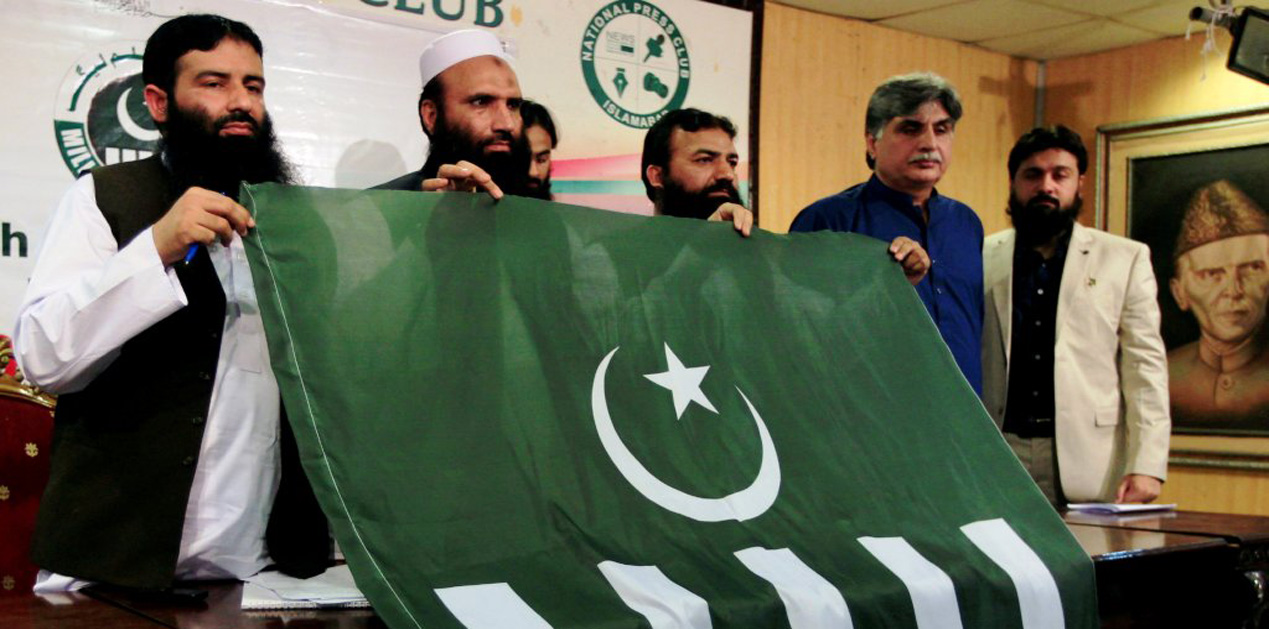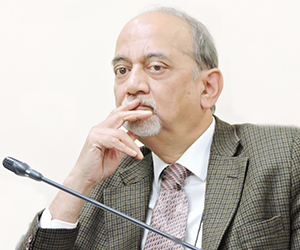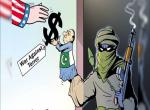The Pulwama attack has to be seen against the background of events in the wider region. On 13th February, a suicide attack on killed 27 Iranian soldiers in Sistan Balochistan province of Iran. The Iranian National Guards Corps (IRGC) ground forces commander Brigadier General Mohammad Pakpour stated that the suicide bomber was a Pakistani national Hafiz Mohamed Ali. The methodology was also similar to the attack in J&K. An explosive laden car rammed into a bus carrying members of the IRGC1.
While the methods were common, Pakistani response was different. Imran Khan questioned Indian motives in case of terror attack in Pulwama. In case of attack in Sistan-Balochistan, Pakistan is cooperating with the Iranian government. Islamabad has announced sending a team to Iran. The Iranian side is however, not satisfied. Brigadier General Hossein Salami, the IRGC commander, said that Iran will take revenge on those behind the attacks2. Foreign Ministry spokesman Bahram Qassemi said that ‘It is not tolerable for us that the government and the army of Pakistan cannot prevent such acts of sabotage and terror from inside their soil against Iran.’3
Afghanistan has witnessed a spate of such attacks on government forces and civilians alike. On the eve of talks between US and Taliban in Doha, Taliban carried out an attack on an Afghan forces training center in Wardak on 21st January killing more than 100 soldiers. Total number of deaths in proxy war Pakistan has been carrying out in Afghanistan through Taliban is more than 10,000 in past two years alone4. President Ghani, in a statement on 30th January,, said that the key to peace is in Afghanistan, but ‘the key for war is in Islamabad, Quetta and Rawalpindi’5.
The common factor in these three different situations is Pakistan’s use of Jehadis to sponsor terrorism. It uses Islam as a card against ‘Hindu’ India. Iran is a Shia state, while Afghanistan is largely Sunni. Religion is only an excuse for Pakistan to pursue her geo-political interests.
The attack in Sistan-Balochistan province of Iran coincided with Saudi Crown Prince’s visit to Pakistan. Pakistan has been desperately trying to get the Kingdom to bail her out from a desperate economic situation. The Iranian Supreme Leader linked the terror attack to ‘the spying agencies of some regional and trans-regional countries.’ The incident is bound to increase misunderstanding between Iran and Saudi Arabia. Iran has long complained of Pakistan having provided sanctuary to Jaish-e-Adl, an anti-Iran group in Pakistani Balochistan. Pakistan has encouraged influx of extremist Sunni groups in Balochistan to suppress Baloch nationalism. These groups have also launched attacks on Pakistani Shia groups. In the past, Shia pilgrims going to Iran have been attacked and killed by Sunni extremist groups.
Pakistani PM Imran Khan, after a long pause, made an elaborate statement on Pulwama attack. The statement projected Pakistan as innocent victim, while blaming Indian politicians for hyping the issue in an election year. Strangely enough, the statement did not contain any criticism of the act of terrorism. This should not have been too difficult given his professed commitment to counter the menace. Condemnation of terrorism is indeed the normal practice on such occasions. On the other hand, in case of ‘terrorist attack’ in Iran, Pakistani Foreign Minister Qureshi ‘strongly condemned and offered condolences’ according to Iranian media reports6. Pakistan tries to mollify Iran, is dismissive of Afghan government’s complaints, and is brazen in her response to the Indian side.
Imran Khan’s denial flies in the face of statement by Jaish-e-Muhammad (JeM) claiming credit for attack by the suicide bomber Adil Dar. No tangible action has been taken by Pakistan against the outfit for making such a claim. If they believe it was not correct, or if Pakistan agencies were not involved, it was all the more reason to hold JeM to task for implicating Pakistan in an act of terrorism, which could start a war as Pakistani PM claimed.
Imran Khan’s statement mentioned ‘the new Pakistan with a new mindset and a new thought process’. The statement added that ‘the world has realized that military is not the solution in Afghanistan and only dialogue would resolve issues’. He rhetorically added ‘should India also not discuss this?’ There is nothing new in Pakistan’s call for dialogue while sponsoring terrorism. It has used this tactic for well over three decades on J&K issue. In Afghanistan, Taliban have rejected Ghani government’s repeated calls for cease-fire while holding dialogue with US Special Representative Zalmay Khalilzad in Doha and participating in intra-party dialogue with Afghan groups in Moscow. Its favorite strategy is negotiations under the barrel of the gun, where the gun is pointed at someone else.
What could be India’s response? India would be justified in using her right of self-defence and retaliate. Imran Khan in his statement said that in such an event, ‘Pakistan would not have any other choice, to give an answer’. This is also part of the old script followed by Pakistan. Pakistan initiates the exchange; if India responds, it is dubbed as escalation, which will likely lead to war. The statement is designed to pre-empt India’s legitimate reaction, while keeping the initiative with Pakistan to launch attacks through proxies.
What are India’s options? Revoking MFN status only brings us on par with the practice followed by Pakistan for decades. We should look at other options. India must withdraw from Indus Water Treaty. This is not to suggest diversion of water. But we need to rectify mistakes of the past, where the lower riparian received 80 percent of the water despite being 1/7th in size. There is no precedent where an upper riparian has bound itself to such onerous terms. The Treaty is a relic of Cold War politics, where World Bank played a partisan role. We need not accept such an unequal treaty in perpetuity. Scrapping the Treaty would free India to undertake development work in future, whose chief beneficiary will be people of J&K.
We also need to respond to Afghan government’s need for support. Afghanistan has had to bear the brunt of Pakistan’s interference through proxies. Admiral Mike Mullen, Chairman of US Joint Chiefs’ of Staff Committee testified to the US Senate that Haqqani group is veritable arm of ISI. This is the most influential element within Taliban. After American withdrawal, Afghan government will come under intense pressure. This could be beginning of new round of trouble in Kashmir.
References:
- Tehran Times, 19.2.2019.
- Tehran Times, 19.2.2019.
- Tehran Times, 19.2.2019.
- http://www.satp.org/about-satp
- Tolo News, 30.1.2019.
- Tehran Times, 18.2.2019.
Image Source: https://media.dhakatribune.com/uploads/2018/04/2018-04-03T075612Z_1615638001_RC16F708C520_RTRMADP_3_PAKISTAN-USA.jpg











Post new comment